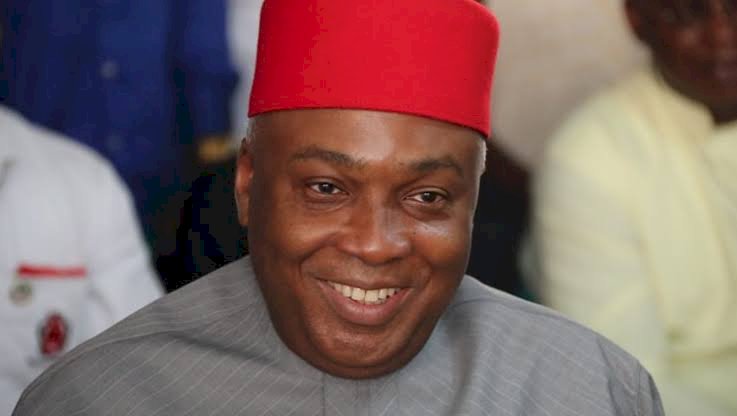2023: Aspirants Must Reveal Plans For Healthcare – Saraki

Former President of the Senate, Bukola Saraki, has charged Nigerians to interrogate politicians on their plans for healthcare during campaigns ahead of the 2023 elections. He also called for stronger political will amongst politicians and policymakers to achieve universal basic healthcare in Nigeria. Saraki was speaking on Thursday at the Yar’Adua Centre in Abuja during the Universal Health Coverage Summit organised by Chatham House. This was contained in a statement signed by the Head, Abubakar Bukola Saraki Media Office, Abuja, Olu Onemola, titled ‘Saraki: Stronger Political Will Needed to Achieve Universal Basic Healthcare’ Saraki said, “Very soon, politicians will soon start campaigning to be President or to be governors. Nigerians must ask them, ‘What are your plans for universal health coverage?’ and ‘How do you intend to achieve it?’ When the time comes, the answers to these questions must be considered by the electorate.” He said that to put healthcare and health security coverage on the front burner, Nigerian leaders at the national and sub-national levels needed to take healthcare delivery for all its citizens more seriously. Sarali continued, “As a medical doctor, this is a topic that is close to my heart. It is a topic that I believe that we all need to get on board to ensure that more Nigerians have access to healthcare coverage.Former President of the Senate, Bukola Saraki, has charged Nigerians to interrogate politicians on their plans for healthcare during campaigns ahead of the 2023 elections. He also called for stronger political will amongst politicians and policymakers to achieve universal basic healthcare in Nigeria. Saraki was speaking on Thursday at the Yar’Adua Centre in Abuja during the Universal Health Coverage Summit organised by Chatham House. This was contained in a statement signed by the Head, Abubakar Bukola Saraki Media Office, Abuja, Olu Onemola, titled ‘Saraki: Stronger Political Will Needed to Achieve Universal Basic Healthcare’ Saraki said, “Very soon, politicians will soon start campaigning to be President or to be governors. Nigerians must ask them, ‘What are your plans for universal health coverage?’ and ‘How do you intend to achieve it?’ When the time comes, the answers to these questions must be considered by the electorate.” He said that to put healthcare and health security coverage on the front burner, Nigerian leaders at the national and sub-national levels needed to take healthcare delivery for all its citizens more seriously. Sarali continued, “As a medical doctor, this is a topic that is close to my heart. It is a topic that I believe that we all need to get on board to ensure that more Nigerians have access to healthcare coverage.
“To achieve development, the Nigerian population must be healthy. If we can get healthcare coverage right as a nation, we will be doing a lot for our citizens.
“However, the people that truly matter, the political leaders and decision-makers at the national and sub-national levels should be the ones at summits like this one to discuss what their manifestos and plans in the healthcare sector are for the Nigerian people.” Saraki, who as Senate President spearheaded the passage of the inclusion of one per cent for basic primary healthcare from the Consolidated Revenue Fund in the 2018 budget—the first occurrence of this nature in Nigeria’s history—emphasised that Nigeria had the technical knowledge, tools, and resources to achieve universal healthcare coverage, however, it still lacks the political will at the executive level. “We can pass three more laws or five more laws. However, unless the leadership of the nation and our states believe in holistic healthcare coverage for all like all the doctors and healthcare public policy experts in this room, we will not be able to achieve universal healthcare coverage,” the former Kwara State Governor said. The former Senate President also emphasised that in a post-2023 Nigeria, the federal government and states must increase the number of those covered by healthcare insurance from the present 3 to 7 per cent of the population, to work to attain 100 per cent coverage. “We must look at how we can achieve this between 2023 and 2027. The state and federal governments must first focus on how to ensure that the less privileged in our society receive healthcare coverage between 2023 and 2025,” he said.
PUNCH

 TSOEDE TV
TSOEDE TV 












